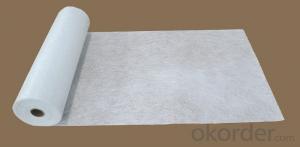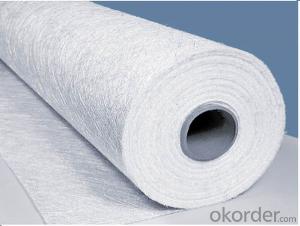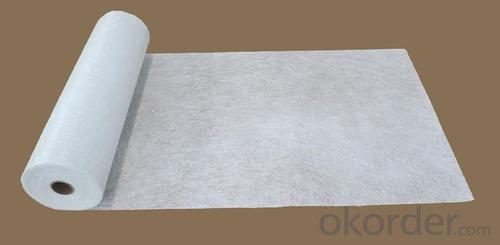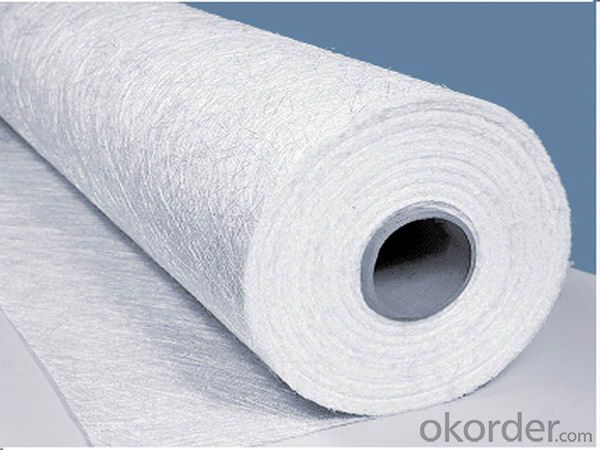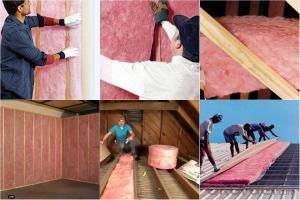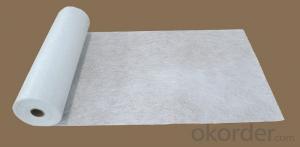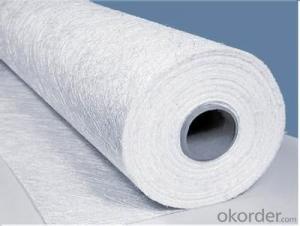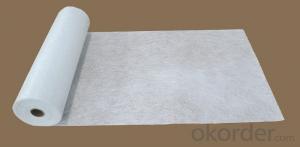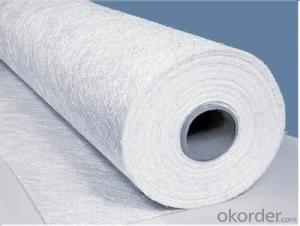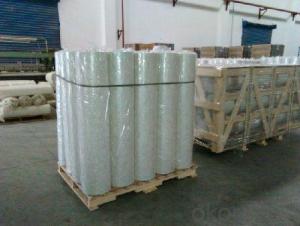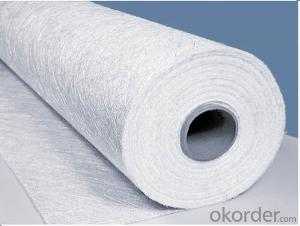Fiberglass Mat Tissue E-Glass Fiber Chopped Strand Mat Powder Bonded
- Loading Port:
- Shanghai
- Payment Terms:
- TT or LC
- Min Order Qty:
- 20000 kg
- Supply Capability:
- 200000 kg/month
OKorder Service Pledge
OKorder Financial Service
You Might Also Like
Brief Introduction
Chopped strand mat is made from chopped glass fibers, which are bonded with powder or emulsion binders. It can be used in hand lay-up process and continuous laminating process to produce FRP products, such as plates, lighting board, hull, bathtub, cooling towers, anti-corrosion materials, vehicles.
Characteristics
Good transparency for the laminates
Rapid wet out
Easy to remove air bubbles
Good dispersion and uniformity
High wet-strength retention
Good mechanical properties
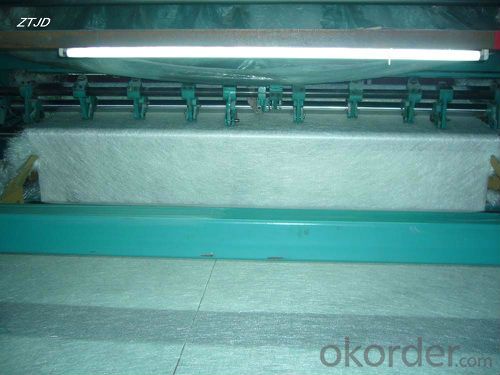
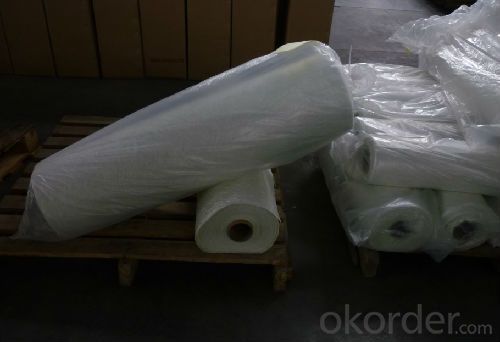
Specification:
Property | Unit | Specification | Standard |
Density | g/m2 | 80-900 | ISO 3374-2000 |
Fiber Chopped length | mm | 50 | |
Sizing | Silane | ||
Filament Diameter | um | 11-13 | ISO 1888-1996 |
Bonder Content—Powder (%) | % | 3.5 +/-1.2 | ISO 1887-1995 |
Moisture Content (%) | % | < 0.20 | ISO 3344-1997 |
Width (mm) | mm | 100-- 3200mm |
Packaging:
The packing is according customer’s requirement. Each roll with a plastic bag and carton, then pallet with shrink film wrapped.
Storage:
Unless otherwise specified, Chopped Strand Mat should be stored in a dry, cool and rain-proof area. It is recommended that the room temperature and humidity should be always maintained at 15℃~35℃ and 35%~65% respectively.
- Q: Is fiberglass mat tissue fire-resistant?
- Yes, fiberglass mat tissue is fire-resistant.
- Q: How does fiberglass mat tissue perform in terms of moisture absorption?
- Fiberglass mat tissue performs exceptionally well in terms of moisture absorption. Due to its composition of fine fibers, it has a high surface area which enables it to quickly absorb moisture. Additionally, fiberglass mat tissue is hydrophobic, meaning it repels water and does not retain moisture for extended periods. This characteristic makes it an ideal material for applications where moisture resistance is crucial, such as in the construction of waterproofing membranes or in the manufacturing of boats and water tanks. Overall, fiberglass mat tissue demonstrates excellent performance in preventing moisture absorption and maintaining its structural integrity even in wet environments.
- Q: Can fiberglass mat tissue be used for insulation boards?
- Yes, fiberglass mat tissue can be used for insulation boards. It is frequently utilized in insulation boards due to its excellent thermal and acoustic insulation properties. The fiberglass mat tissue helps to enhance the insulation capabilities of the boards, making them more energy-efficient and effective in reducing heat transfer and sound transmission.
- Q: Is fiberglass mat tissue resistant to moisture vapor transmission?
- Yes, fiberglass mat tissue is resistant to moisture vapor transmission. It is a highly durable and moisture-resistant material that is commonly used in various applications where moisture control is important, such as in roofing, insulation, and flooring. The fiberglass mat tissue is specifically designed to prevent the transmission of moisture vapor, helping to maintain the integrity and performance of the materials it is used with. Its resistance to moisture vapor transmission makes it an ideal choice for environments where moisture control is critical.
- Q: Can fiberglass mat tissue be used for repairing fiberglass shower stalls?
- Certainly! Fiberglass mat tissue is an excellent choice for fixing fiberglass shower stalls. It is a flexible material that is widely utilized for reinforcing and mending various fiberglass structures, such as shower stalls. Its purpose is to enhance the strength and resilience of the repaired section, guaranteeing a durable and dependable solution. By pairing fiberglass mat tissue with compatible fiberglass resin, one can effectively mend cracks, holes, and other impairments in fiberglass shower stalls. Nevertheless, it is vital to diligently adhere to the instructions and recommendations provided by the manufacturer to achieve optimal outcomes in terms of application and curing.
- Q: What is the thermal resistance of fiberglass mat tissue?
- The thermal resistance of fiberglass mat tissue typically ranges from 0.3 to 0.6 square meters Kelvin per watt (m²K/W), depending on the specific composition and thickness of the material.
- Q: Can fiberglass mat tissue be used in automotive manufacturing?
- Indeed, fiberglass mat tissue finds great utility in the realm of automotive manufacturing. Crafted from interwoven glass fibers bonded by a binder, this pliable and lightweight material serves a multitude of purposes within the automotive industry. It excels at reinforcing body panels, constructing structural components, and improving sound and heat insulation. An advantageous attribute of fiberglass mat tissue in the realm of automotive manufacturing lies in its remarkable strength-to-weight ratio. It bestows superb reinforcement capabilities upon the vehicle while adding minimal mass, rendering it an optimal selection for bolstering fuel efficiency and curbing emissions. Furthermore, fiberglass mat tissue boasts exceptional malleability, enabling effortless shaping and molding into intricate geometries requisite for automotive parts. This material readily reinforces regions susceptible to intense stress, including the roof, doors, and undercarriage, thereby augmenting the vehicle's overall robustness and endurance. Moreover, fiberglass mat tissue exhibits outstanding resistance to corrosion, chemicals, and extreme temperatures, engendering its suitability for deployment in diverse automotive environments. It also serves as an effective insulator against sound and heat, effectively abating noise and preserving a comfortable internal temperature. All in all, fiberglass mat tissue has emerged as a cherished resource in automotive manufacturing, owing to its lightweight, sturdy, moldable, and durable properties. The versatility and performance characteristics it embodies render it the preferred choice for numerous automotive manufacturers seeking to heighten the excellence and performance of their vehicles.
- Q: How does fiberglass mat tissue compare to other types of reinforcement materials?
- Fiberglass mat tissue, widely utilized in industries such as construction, automotive, and marine, serves as a common type of reinforcement material. When evaluating fiberglass mat tissue in comparison to other reinforcement materials, several factors come into play. First and foremost, fiberglass mat tissue exhibits remarkable strength and durability. With its high tensile strength, it can endure substantial pulling or stretching forces without distorting or breaking. This strength is comparable, if not superior, to reinforcement materials like carbon fiber or aramid fibers. Furthermore, fiberglass mat tissue displays excellent resistance to chemical, moisture, and UV degradation, rendering it suitable for long-term usage in various environments. Another advantage of fiberglass mat tissue lies in its cost-effectiveness. In contrast to other reinforcement materials, fiberglass is relatively affordable, making it a popular choice for manufacturers and builders who require a cost-efficient solution without compromising quality. Its affordability expands its accessibility to a wider array of applications and industries. Moreover, fiberglass mat tissue is renowned for its versatility. It can be molded into different shapes and sizes, allowing for customization and flexibility in design. This adaptability makes fiberglass mat tissue suitable for a broad range of applications, ranging from simple repairs to complex structural reinforcements. However, it is important to note that fiberglass mat tissue may have certain limitations when compared to other reinforcement materials. For instance, it may not possess the same level of stiffness or strength as carbon fiber, which is often preferred in high-performance applications. Additionally, fiberglass mat tissue may exhibit lower resistance to impact or fatigue when compared to materials like aramid fibers. In conclusion, fiberglass mat tissue provides a favorable combination of strength, durability, cost-effectiveness, and versatility, making it a favored choice for numerous applications. While it may have some limitations when compared to other reinforcement materials, its overall performance and affordability render it a widely utilized and dependable option in various industries.
- Q: What is the shelf life of fiberglass mat tissue?
- The shelf life of fiberglass mat tissue varies depending on the manufacturer and storage conditions. However, on average, fiberglass mat tissue can have a shelf life of up to 1-2 years if stored properly in a cool, dry place and protected from moisture and direct sunlight. It is important to check the manufacturer's recommendations for specific shelf life information.
- Q: Is fiberglass mat tissue suitable for automotive interiors?
- Yes, fiberglass mat tissue is suitable for automotive interiors. It is commonly used as a reinforcement material in automotive parts and can provide strength, durability, and improved acoustic performance. Additionally, fiberglass mat tissue is lightweight and easy to mold, making it a practical choice for various interior components such as door panels, headliners, and trunk liners.
Send your message to us
Fiberglass Mat Tissue E-Glass Fiber Chopped Strand Mat Powder Bonded
- Loading Port:
- Shanghai
- Payment Terms:
- TT or LC
- Min Order Qty:
- 20000 kg
- Supply Capability:
- 200000 kg/month
OKorder Service Pledge
OKorder Financial Service
Similar products
Hot products
Hot Searches
Related keywords
